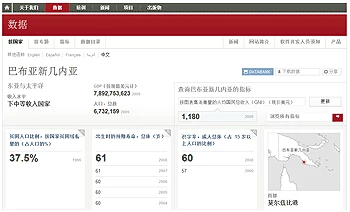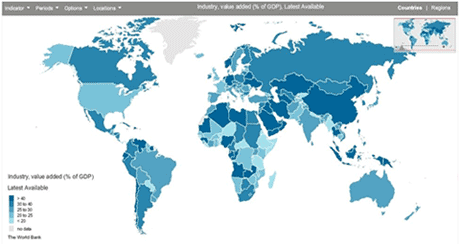
As an economist monitoring the macroeconomic developments of the Chinese economy, dealing with data is one of my main jobs. I am so happy that now I have a new tool to handle data and make economic analysis. It is the World Bank Open Data platform launched recently. Based on my user experience till now, I found two features of it are specially worth highlighting:
1. Comprehensive indicators are available on the Open Data platform. As an international research organization, the World Bank has collected more than 2,000 development indicators of 209 countries. Besides economic indicators, there are lots of other development indicators including health, education, environment, rural and urban development, social security, R&D, etc. These comprehensive and consistent data are very useful for researchers to make international comparisons.
2. The user interface is very friendly. We can search and download data by country, region, or by topics, even by indicators. Additionally, the database also provides some widgets to display tables, maps or charts. Specially, these widgets are "alive"—when new data is available, the widget will automatically display it. One of my favorites is the eATLAS of Global Development which allows users to easily and quickly transform data into customized visual color maps. Both the maps and the underlying data can be exported for later use.
For example, the following chart is the map I used to analyze the economic structure in different countries. It is very clear from the map that industry development carries more weight in the GDP of China than in the EU and the U.S.

I am also surprised that the database even provides Chinese, French, Spanish and Arabic versions.
Of course, the greatest thing is that the whole database is totally free for all users, even for global software developers. I noticed that the application for iPhone to use World Bank data has already been released. With more apps available in future, I think the initiative of World Bank Open Data—"the data are being used to help reduce poverty"—will be achieved more efficiently.


Join the Conversation